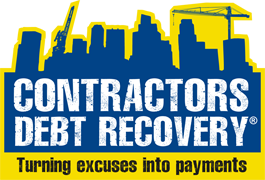Good Bloke’s Don’t Get Paid
You’ve done the right thing by your client. You’ve completed the work, you’ve met the deadlines asked of you, and you’ve even thrown in some extras at no charge. Your client has not paid the last three progress claims but you haven’t complained too much. You have demonstrated that you are the easiest going hardest working contractor that the client is likely to find. Surely this means that you’ll ultimately be paid without any hassles, right?
Wrong.
You have suffered an attack of good bloke-itis. Key symptoms are;
Working for no Payment
The less you are paid the harder you work Agreeing to include additional work at no additional charge Allowing your client to hold you to your contractual obligations while not holding him to his obligations Doing everything you can not to be ‘difficult’ Contracting and subcontracting bring with it a very strong culture of good faith and mateship. Many contractors will sacrifice almost anything to keep the relationship with their client on an even keel because you’re both ‘good blokes’.
Essentially you are being a good bloke because you think that this is what the client values. The key thing you’re missing is this; the client doesn’t care about the relationship. The client values your work. That’s all. And so long as you keep doing it without making a fuss or insisting on payment the better a bloke you will be, even if you’re actually a complete bastard.
Further, the nicer a bloke you are trying to be, the more work you will do for nothing. And that is what your client loves.
So what we have here is a misalignment of values. The contractor is trying to look after the working relationship, where the client is trying to get the most work done for the least payment. Sadly the contractors’ approach plays right into the client’s hands.
So stop being a good bloke. Be a businessman. If you complete work you are entitled to get paid for it. If you do additional work, then charge additional fees. Forget about being ‘mates’. Your client already has mates, and so do you. You are entitled to firmly but politely insist that the business relationship should function as agreed between the both of you.
I have seen many earnest and sincere contractors get into severe cash flow problems because they have carried out so much work without payment, that their businesses cannot carry the cost any longer. Why did this happen? In the course of our discussions it became clear that this behaviour was caused by the contractor’s strong belief that, as long as he behaved like a ‘good bloke’, he would eventually get paid.
This is a misplaced belief, and clients will take advantage of it.
I was called by a contractor who had carried out multiple projects for the same client over 3 years. They had completed the works perfectly, and the client kept re-engaging them on new projects.
But the contractor was now owed nearly a million dollars! Yet not once did this contractor issue a default notice, make a Payment Claim under the Security of Payment Act, suspend work, or make any other payment demand. The urge to remain ‘good blokes’ was so strong that it compelled these contractors to extend a million dollars in credit to their client! In addition they still thought of the client as a ‘good bloke’! After all, he kept handing them huge contracts and all the work they could handle.
I suggested that the client was only taking advantage of them, and only kept offering them more work because they had consistently demonstrated a willingness to work for extended periods for no money. Their client was a thief.
There was a pause in the conversation. It was like the lights going on. These contractors finally saw how they had been used, and how they had been blinded to the true nature of the relationship: they were trying to be good blokes with a businessman. What they should have been is businessmen themselves.
My view was only confirmed when we commenced strategies to get payment, which included suspending works under the contract. The client responded with a series of venomous letters and unsubstantiated allegations, accusing the contractor of poor workmanship, causing damage, and mistreating other tradesman on site.
So much for being a good bloke. It was a savage lesson to learn, but a good one. In this instance the client was clearly aware that he had gotten away with non-payment for a very long time, and the moment the contractors put the pressure on, he lashed out.
It didn’t take long for my contractors to adopt a businessman mind-set, and we got busy running payment claims, suspending works, and sending letters of demand.
Then the cheques started to arrive. Good blokes don’t get paid. Businessmen do.
